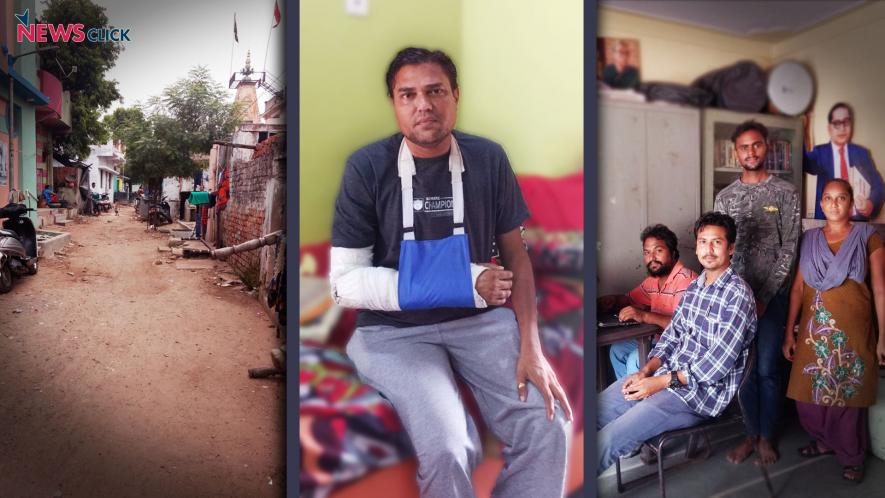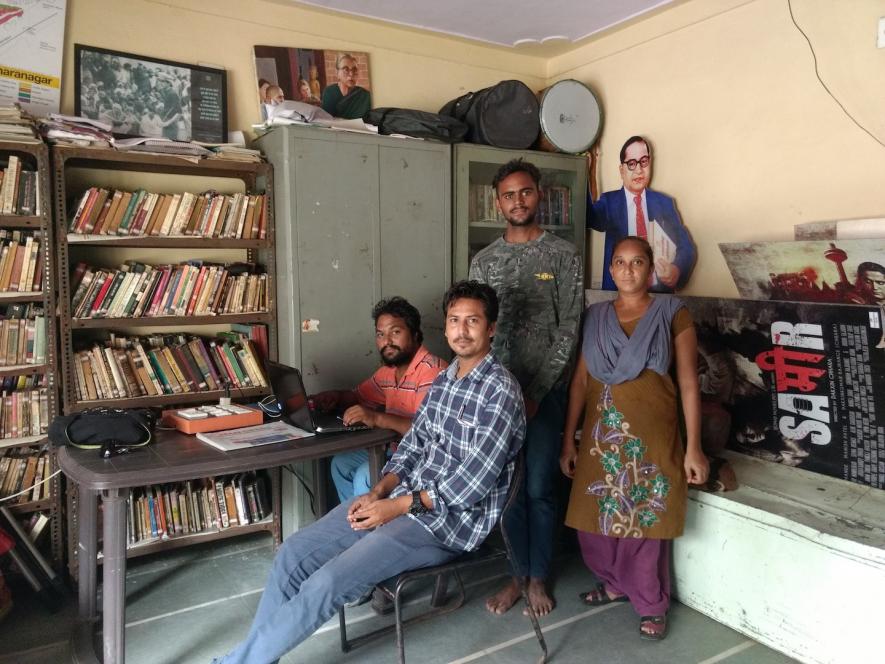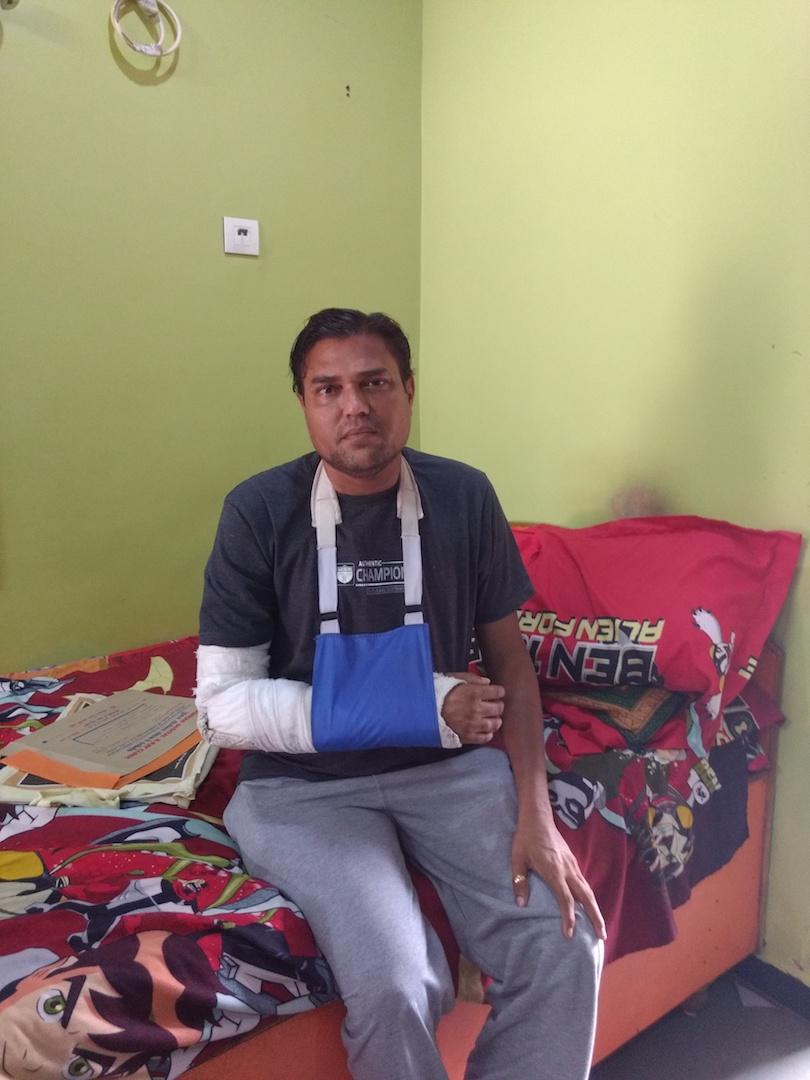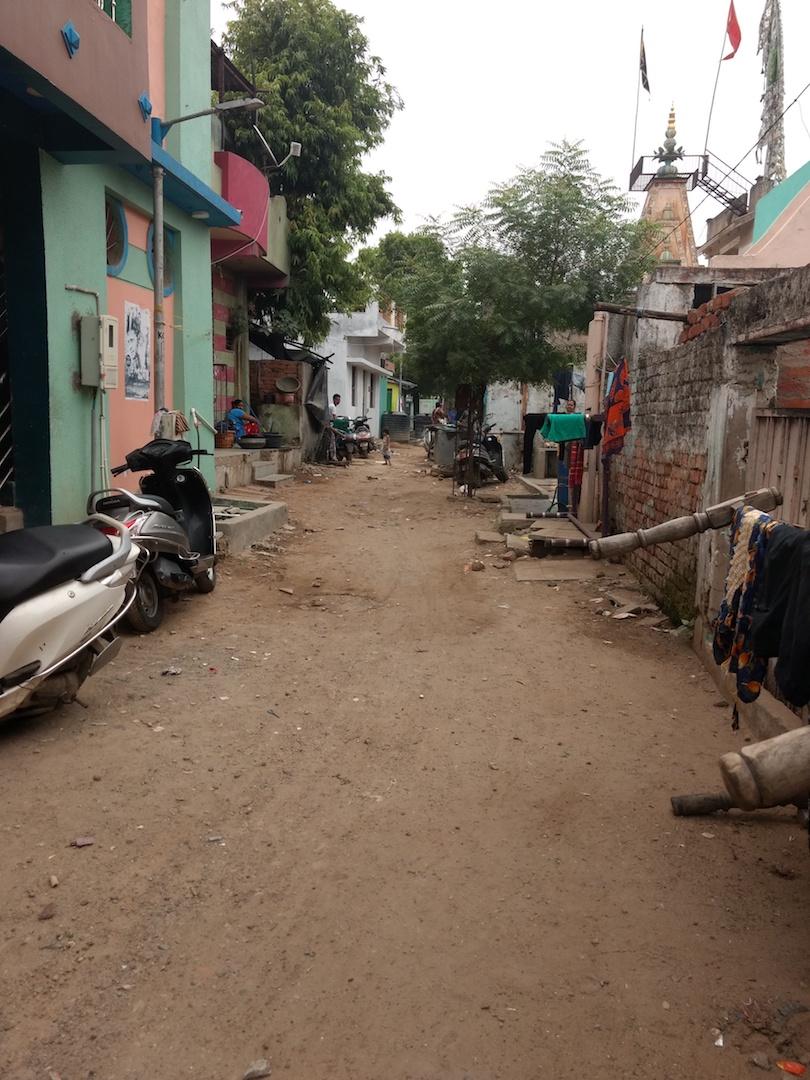Life of a Chhara: Plagued by Prejudice and Unimaginable Stigma

“Har DNT banda puch raha hai, kya hum chor hain? Kya hum chor hain? Hume chahiye atma samman. Hume chahiye atma samman. (Every person from the DNT community is asking the question, are we criminals? Are we criminals? We want self-respect. We want self-respect.)”
A street play Budhan Bolta Hai performed by artists of Budhan theatre concludes with these lines. But, these are not mere lines of a play for a Chhara, a person belonging to the De-notified Tribes (DNT) living in India that had been declared ‘criminal’.
“My grandmother was a street singer, but my father was a thief and so were many Chhara men of his generation. Chharas were folk artists; street singing, dancing and acting used to be the primary source of sustenance for them. But, after being branded criminals, it became difficult for Chharas to earn by singing or acting. Even when the act of 1871 was repealed and Chharas were let out of prisons, the stigma of being criminals became a hurdle in earning by traditional means. But Chharas are artists, they found a way to use the art they knew in other forms, and that is how Chharas resorted to thefts by conning people. Chharas have never resorted to an act of violence like burglary or looting,” says Dakxin Bajrange, a Chhara artist and an activist.

“Men, who were directors of the street plays, became the leaders of the group of thieves or Tukde as Chharas would call them. The leader would recce and meticulously plan before informing his group of the theft they were to do. Each member would have a designated role to play. Skills of acting came handy in impersonating, and the costumes used in street plays were now useful in execution of the thefts. Chharas began travelling across the country to con and carry out thefts. They had a principle to not steal from home; so, they would travel out of Gujarat,” he said.
Travelling around the country and carrying out recce required money. Hence, Chharas began to borrow money on interest from local loan sharks for investing in the planning and logistic of the thefts. Gradually, Chharas were hugely indebted. After paying the interest and bribing the police, about 20 per cent of the theft money would be left to be distributed amongst group members. When earning from stealing wasn’t enough, Chhara women resorted to making country liquor.
“This became a vicious circle. Chharas, who wanted to quit being a thief, couldn’t as they had to pay debts. And many a times, it was the high-handed behaviour of the police that would push Chharas into the world of crime,” adds Bajrange.
Chharas were a nomadic tribe until British government listed them under Criminal Tribe Act of 1871 and declared them ‘born criminal’. Once a tribe became notified as criminal, all its members were required to register with the local magistrate, failing which, they would be charged with a ‘crime’ under Indian Penal Code. After independence, the Criminal Tribe Act 1871 was repealed on August 31, 1952, and the people of NT and DNT communities were released from open jails. The NT (Nomadic Tribe) and DNT’s across the country celebrate this day as their Independence Day.
However, the hope that the next generation of NT and DNTs could live a life free of discrimination was short-lived. The act was replaced by Criminal Tribe Act of 1952, which repealed the notification declaring the tribes criminal, and thereby ‘de-notified’ them. The act of 1952 brought in a series of Habitual Offenders Act that gave the police the power to investigate ‘suspects’, ‘criminal tendencies’ and whether their ‘occupation was conducive to lead a settled life’.
In Gujarat, Chharas settled near open prison areas after being released from the open jails. One such area has come to be known as Chharanagar in Ahmedabad, Gujarat. An urban ghetto of about 6,000 Chhara families is flanked by a ghetto of Dalits called Ambedkar Waas and a neighbourhood of Sindhis called Kubernagar.
While there is no street light, roads, proper water or sanitation facility in Chharanagar, the scenario drastically changes as one steps into Kubernagar, a neighbourhood with broad and clean roads, and all the other basic amenities of a city.
Bajrange wanted to serve as an officer in the Indian Administrative Services (IAS). On June 16, 2003, he was to appear for the preliminary examination. However, on June 10, he was arrested by the local police in Ahmedabad for staging a street play.
Despite producing his admit card, requesting and begging, Ahmedabad police released Bajrange only on June 26, 2003.
“It was my father’s dream that I become an IAS officer. He stole and conned to run the family, but educated his children. He had faced all kinds of police brutality one can imagine. There is hardly any jail in this country where he wasn’t kept. At times, police wouldn’t even arrest him, they would strip him, and ask him to run on the road. While leaving such a life, the generation of Chhara men, who were all thieves, dreamt for a better future for our generation,” says Bajrange.
Noticeably, the state government did nothing to promote education of the Chharas. Hence, education came to Chharas in as late as in 1990s. In 1998, noted writer Mahasweta Devi and Ganesh N Devy, literary critic and activist, started working for the upliftment of the tribe. During this time, a small library was set up in Chharanagar that mostly has books on literature, theatre and drama. But what set Chharanagar on the wheels of change was formation of Budhan Theatre, a group of Chhara artists led by Dakxin Bajrange. Apart from performing street plays that narrate plight of the Chharas and other DNT tribes, Budhan Theatre, since its inception in 1998, has been providing informal education to Chhara children, and teaching them the art of theatre. In about 10 years, most Chharas were educated and had begun sending their children to the primary schools.
But being educated did not take away the stigma of being a Chhara.
“A few years back, I tried to rent a flat for a documentary filmmaker who was visiting Chharanagar from abroad. The society is not even 500 metres outside Chharanagar. I was refused the moment the owner got to know that I am a Chhara,” claims 33-year-old Atish Indrekar, an artist associated with Budhan Theatre, who is also one of the 29 Chharas that were allegedly thrashed by the police, and were arrested last month.
“Just before the massive raid of July 26, the police had begun raiding Chharanagar every night at around 2 am. They would ransack houses, pull out any man or even a woman irrespective of the presence of a female police personnel. Children, who had to appear for the board examinations during that time, couldn’t study, as they were horrified. Growing up in Chharanagar, this kind of police atrocity or being discriminated at school is part of life for a kid,” says Indrekar.
“My brother and I have managed to set up a business of selling clothes over the years. We are not criminals, we are not into making liquor or stealing. Yet, on July 26, police broke into my house and tried to thrash my teenaged daughter. When I intervened, they thrashed me, and broke my right hand. They arrested me and slapped me with 11 charges including rioting and looting. I am patient of acute diabetes, but in custody, police gave me my medicine only after three days. I underwent surgery after being released. For past 15 days, my business has suffered overwhelming loss. I don’t know how many months it will take to recover that,” says 40-year-old

Gagdekar, who used to work in a local musical band and with local disc jockey and used to perform in marriages, before he set up his business.
“I used to play dhol.”
“Chharas are born artists not born criminals,” says 89-year-old Siviben Indrekar.
There was a time when Siviben would sing in marriages and in religious festivals to earn a living. But, that option was no longer available when they were restricted to open jails.
She sings a song that she would sing during the marriage ceremonies over 40 years ago, and explains, “This is one of the many songs that we would sing in marriages. In those days, when I was 40 or so, it would fetch us Rs 100 after a day’s work. But now, Chhara women can’t do that, so they have resorted to making country liquor. So many Chhara men have died young consuming this liquor.”
Rewaben (named changed) makes country liquor at home. Her husband died when he was 25 years old, leaving behind three sons and a scared 24-year-old Rewa.
“He used to work in a factory. When he died, I went to his employer begging for compensation or employment in his place.
Later, I tried to opt for the government widow pension. But all doors were shut on me. I had to feed myself and three sons. I took to making country liquor at home,” says Rewaben.
“I learned the process of making liquor from my mother. Many Chhara women pass the knowledge on to their daughters, so that they can earn in a situation, where all sources of earning are shut down. I earn about Rs 400 a day, after deducting the cost of investment and the cost of bribing police. I have managed to build my own house and have educated my three children,” she says. Rewaben’s eldest son works in a factory, and younger ones are still studying.

Gujarat police has attempted to rehabilitate Chhara women who make liquor but that hasn’t yielded much result. Chhara women were taught stitching and other handiworks, and were employed in factories that would fetch Rs 1,200 to Rs 1,500 a month. But owing to the meagre earning, many women, who were allured initially, came back to making liquor.
“Chhara women don’t trust the police. If we earn enough, we can at least pay the bribe, and keep them away. Else, they misbehave with women, especially with widows. Once, a male police personnel forcefully took out the money that a woman had hid in her bosom. A few years back, a young widow was picked up and gang raped by police personnel in custody,” Rewaben alleges, as her voice chokes. “This is the life of a widow in Chharanagar. I haven’t stepped out of my house since my husband passed away six years ago lest some personnel or another man spots me, a lone vulnerable widow,” she adds.
Get the latest reports & analysis with people's perspective on Protests, movements & deep analytical videos, discussions of the current affairs in your Telegram app. Subscribe to NewsClick's Telegram channel & get Real-Time updates on stories, as they get published on our website.
























